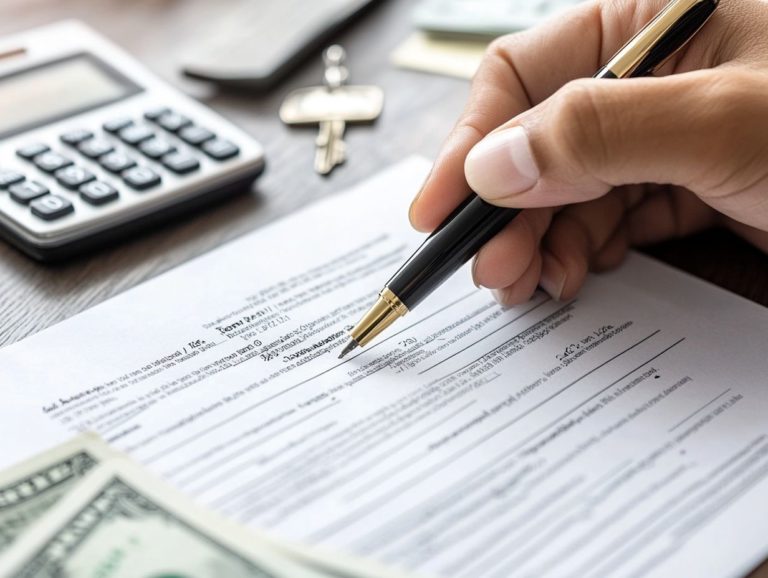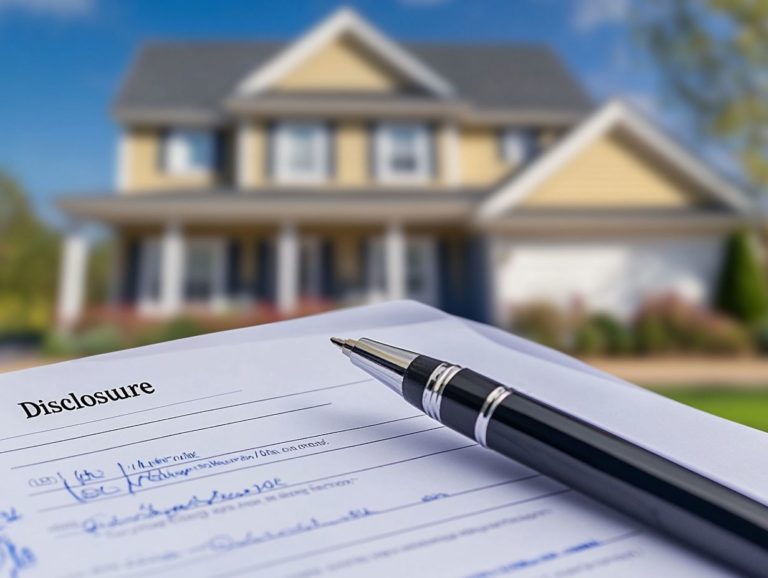How to Handle Home Inspection Repairs?
Navigating the world of home inspections can indeed feel overwhelming, especially if you’re a first-time buyer. Understanding the significance of these inspections and knowing how to address the findings is crucial for making informed decisions that protect your investment.
This guide covers essential aspects of home inspections, from recognizing common repairs that may arise to prioritizing what needs immediate attention. It delves into the pros and cons of tackling repairs yourself versus hiring professionals, offering valuable negotiation tips for dealing with sellers.
You’ll also learn how to ensure that any repairs are completed safely and effectively.
Whether you’re buying or selling, this guide equips you with the knowledge you need to confidently manage home inspection repairs, empowering you to make choices that enhance your experience in the real estate market.
Contents
- Key Takeaways:
- Understanding the Purpose of Home Inspections
- Common Home Inspection Repairs
- Prioritizing Repairs
- DIY Repairs vs Hiring a Professional
- Negotiating Repair Costs with the Seller
- Completing the Repairs
- Ensuring Quality and Safety
- Frequently Asked Questions
- What is a home inspection and why is it important?
- Who is responsible for handling home inspection repairs?
- How do I prioritize which repairs to address first?
- Can I negotiate on the cost of home inspection repairs?
- What happens if I cannot afford to make all necessary repairs?
- Is it necessary to get a re-inspection after completing repairs?
Key Takeaways:
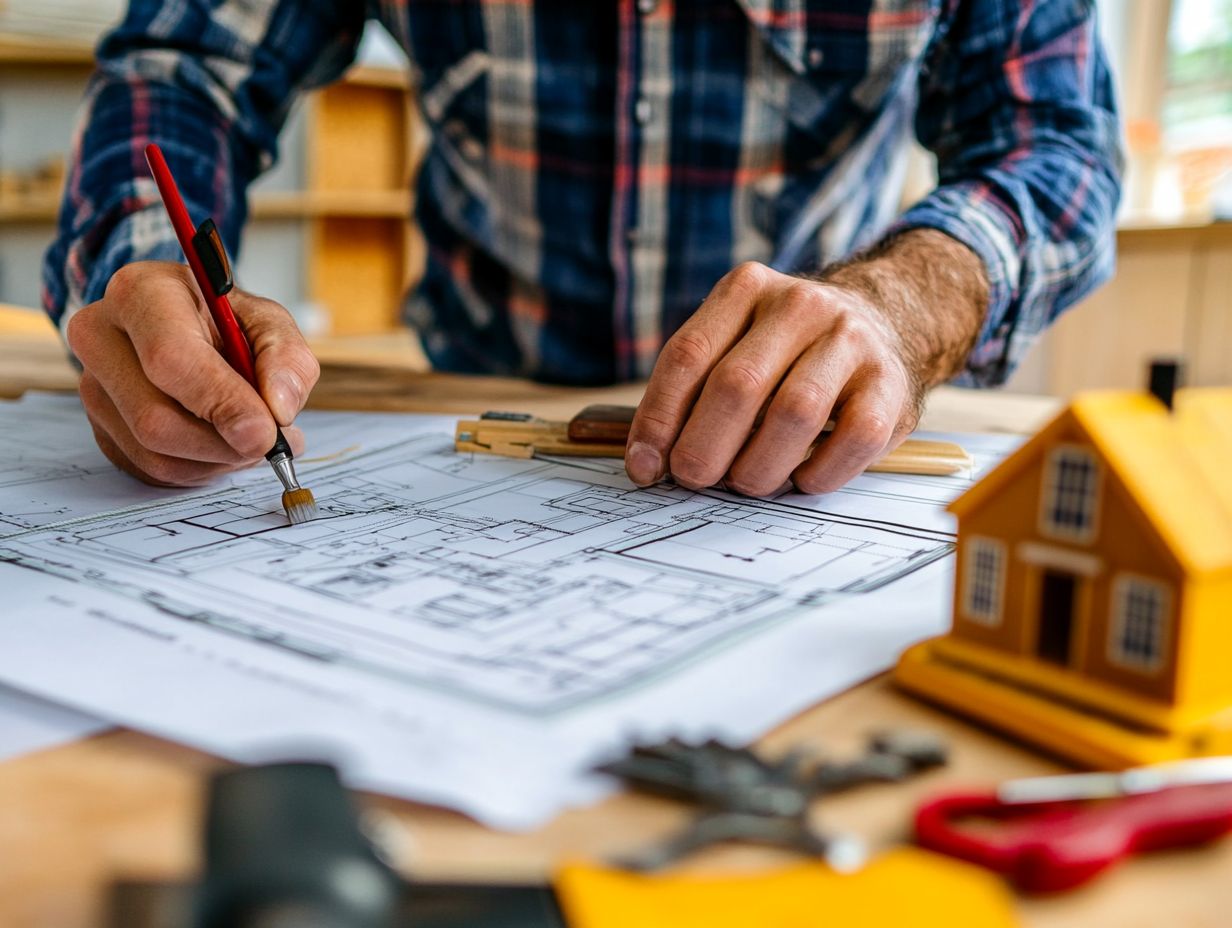
- Understand the importance of home inspections to safeguard your investment.
- Prioritize repairs based on safety and necessity; not all repairs need immediate action.
- Think about the pros and cons of DIY repairs versus hiring a professional.
- Negotiate repair costs effectively with the seller.
Understanding the Purpose of Home Inspections
Understanding the purpose of home inspections is crucial for you, whether you re a buyer or a seller in the competitive real estate market, especially in vibrant locales like Portland, Oregon.
A home inspection acts as an important step, allowing you to uncover any safety concerns, structural issues, or significant repairs that could influence your decision-making process.
With a thorough inspection report in hand, you gain valuable insights into the property’s condition, enabling you to make informed choices before diving into big financial decisions like closing costs and mortgage arrangements.
Why Home Inspections are Important
Home inspections are crucial in real estate transactions, helping you uncover the property s condition, identify potential safety issues, and highlight necessary repairs. This process gives important insights to buyers and sellers.
These evaluations directly impact negotiations, allowing you to engage in discussions with well-informed confidence regarding proposed offers. They help you manage your expectations by offering a realistic perspective on what to anticipate concerning repairs and maintenance.
For sellers, a comprehensive inspection can reveal hidden issues that, if discovered later, might jeopardize closing deals or spark contentious negotiations.
Ultimately, securing a professional inspection not only ensures the safety and quality of the property you re considering but also fosters trust and transparency among everyone involved in the transaction.
Common Home Inspection Repairs
Common home inspection repairs frequently encompass concerns regarding structural integrity, HVAC issues, and pest infestations. These factors can profoundly influence both the value and safety of a property.
Identifying Common Repairs
Identifying common repairs during a home inspection requires you to focus on critical areas such as structural integrity, HVAC systems, and potential pest infestations. As a buyer, you often depend on these inspections to uncover hidden issues that might not be immediately visible, like cracks in the foundation or signs of mold lurking in the attic.
For sellers, you must recognize that neglecting these repairs can lead to costly negotiations down the line. A malfunctioning HVAC system or unexplained pest activity can result in significant price reductions, as buyers factor in the expenses they ll incur to rectify these problems.
A comprehensive inspection report not only informs your decision as a buyer but also provides valuable leverage during price negotiations. This highlights the importance of transparency from both parties to ensure a smooth transaction and avoid any unwelcome surprises.
Prioritizing Repairs
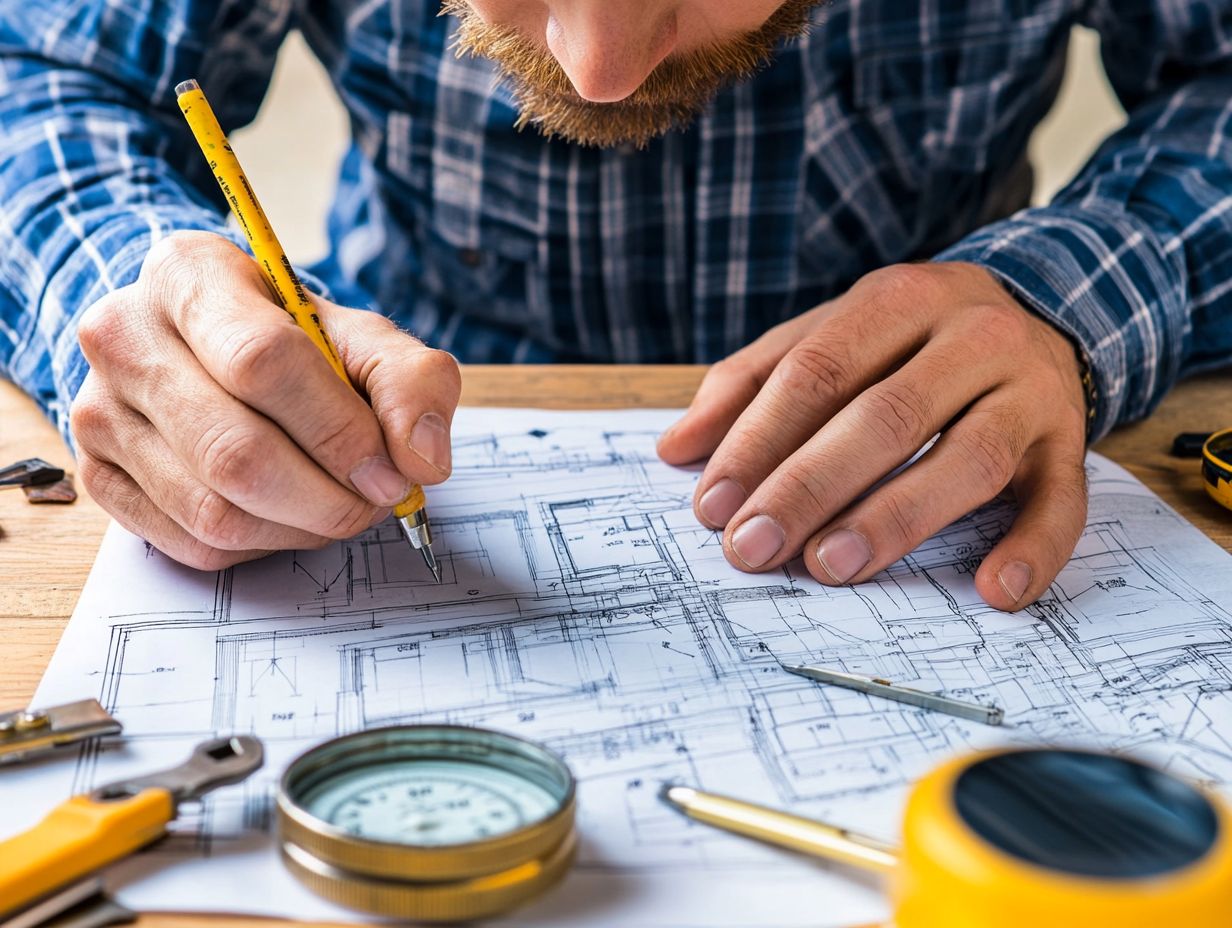
Prioritizing repairs following a home inspection is essential. This approach enables you to focus on critical repairs that can significantly impact your safety, property value, and overall comfort in your new home. For more detailed guidance, check out what to do after a home inspection.
Ready to dive into your home inspection? Take action now to protect your investment!
Which Repairs are Most Important?
Understanding which repairs are the most important is crucial for you as a buyer. This knowledge helps you find essential repairs that could pose safety risks or significantly impact the property s value.
Think of this as your roadmap to a successful home purchase! By focusing on essential repairs, you can effectively convey your concerns and expectations during negotiations with the seller.
This might involve advocating for a reduction in the sale price or requesting that the seller address these urgent issues before finalizing the sale.
Addressing major repairs upfront not only helps you secure a fair deal but also contributes to a smoother overall buying experience. It fosters transparency and trust between both parties, reducing the chances of unexpected complications later on.
DIY Repairs vs Hiring a Professional
When considering repairs, home buyers often find themselves at a crossroads: should they tackle the repairs themselves or hire a professional?
It s a decision that requires careful thought, as you weigh the costs, the level of expertise needed, and the specific nature of the repairs.
Pros and Cons of Each Option
Both DIY repairs and hiring a professional have their pros and cons. These choices influence your costs, the quality of work, and how quickly the necessary repairs can be completed.
On one side, taking the DIY route can be budget-friendly, allowing you to save on labor costs while enjoying a sense of accomplishment.
However, this path has its pitfalls, especially if the repairs require specialized skills. Poor workmanship could diminish your property s value over time.
On the other hand, hiring a professional usually guarantees high-quality results and can speed up the repair process essential when working in a busy housing market.
Yet, this option often comes with a higher upfront cost, which can impact your overall budget. It s essential to assess which approach best fits your circumstances and future property goals.
Consider how your decisions may affect future negotiations and home appraisal values, ensuring you re making the most informed choice for your investment.
Negotiating Repair Costs with the Seller
Negotiating repair costs with the seller is an essential part of the home buying journey. This step secures valuable concessions or credits that can greatly influence your closing costs and overall budget.
Tips for Effective Negotiation
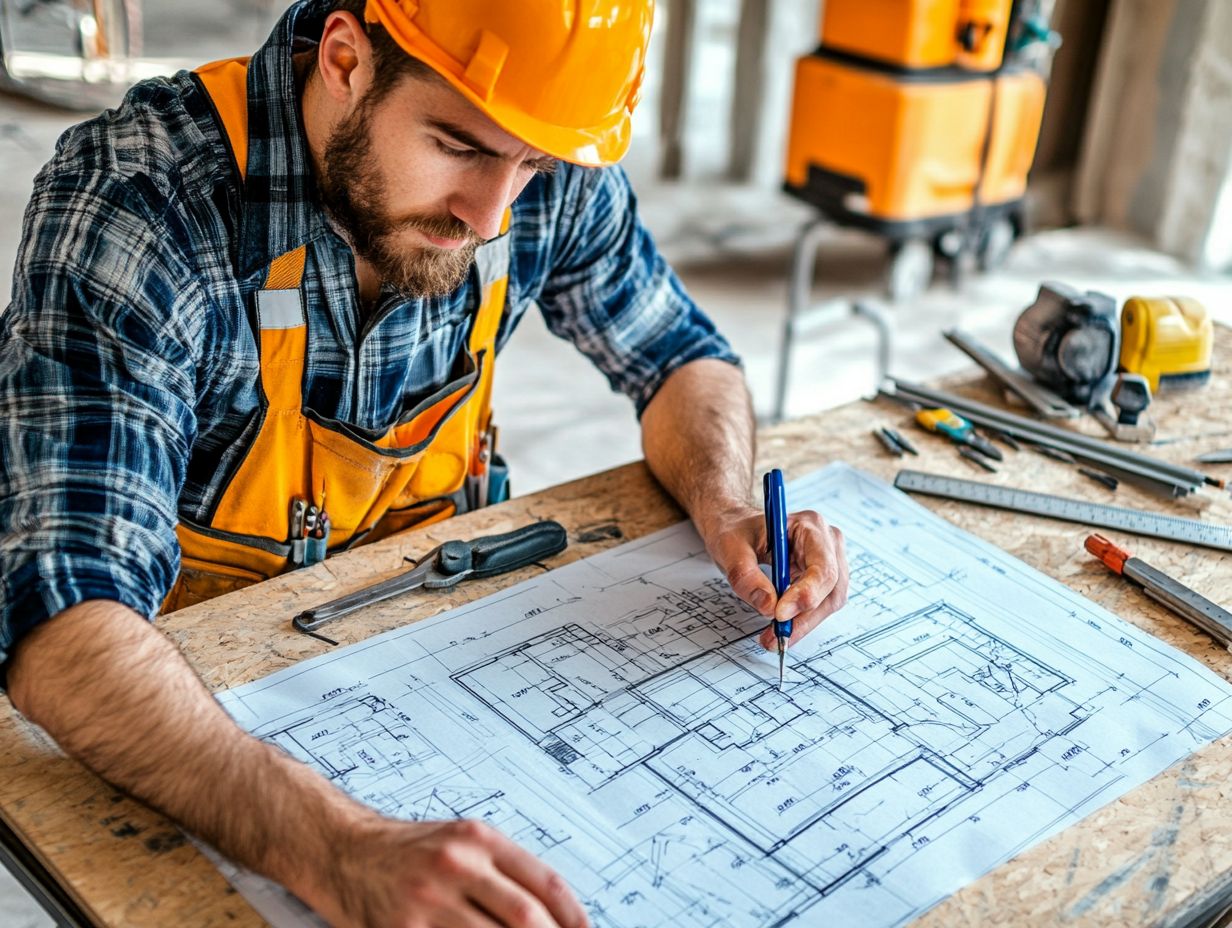
Effective negotiation for repair costs involves leveraging inspection findings, understanding the seller’s perspective, and presenting reasonable repair requests.
As a buyer, enter negotiations equipped with solid data from professional inspections; this provides a credible foundation for your repair requests. It’s also important to consider the seller’s viewpoint; acknowledging their emotional and financial investments can lead to a more productive dialogue.
Clearly stating your specific repair needs streamlines the conversation and helps in setting realistic expectations. Maintaining a respectful tone throughout the negotiation fosters collaboration rather than confrontation, ultimately leading to mutually beneficial outcomes.
Completing the Repairs
Completing necessary repairs after a home inspection requires careful planning, thoughtful budgeting, and often negotiation for repairs with skilled contractors.
This approach ensures that the work meets safety standards and effectively addresses any findings from the inspection.
Balancing these elements leads to a successful resolution, allowing you to move forward with confidence.
Step-by-Step Guide to Completing Repairs
A detailed guide to completing repairs involves a systematic approach that includes evaluating inspection findings, gathering repair estimates, and coordinating with contractors to ensure the work is timely and of the highest quality.
Begin by conducting a thorough assessment of the inspection findings. This step is essential for pinpointing the specific areas that need attention. This initial evaluation allows you to prioritize repairs based on urgency while providing clarity on the scope of work involved. For effective strategies, consider learning how to negotiate closing repairs successfully.
Once you have completed your assessments, it’s crucial to collect and compare repair estimates from multiple contractors. This fosters effective communication, ensuring everyone is aligned on expectations and timelines.
Maintaining open dialogue with contractors throughout the project facilitates smoother operations and allows you to promptly address any arising issues, ultimately leading to successful and satisfying repair outcomes.
Ensuring Quality and Safety
Ensuring quality and safety in home repairs is crucial, as it profoundly influences your property’s condition, resale value, and the well-being of everyone residing within.
Importance of Properly Completed Repairs
Properly completed repairs are essential for maintaining safety standards, enhancing property value, and ensuring long-term satisfaction in your home.
When you execute repairs with precision, you significantly reduce the risk of future issues stemming from subpar work, such as serious problems with the building s structure or safety hazards. Rushing or poorly performed repairs can lead to severe repercussions, including hefty financial costs and emotional distress.
Prioritizing quality assurance guarantees the durability and reliability of your work while elevating your overall quality of life.
By investing in well-executed repairs, you can enjoy peace of mind, knowing your living space is not just aesthetically pleasing but also a safe and secure sanctuary for your family.
Frequently Asked Questions
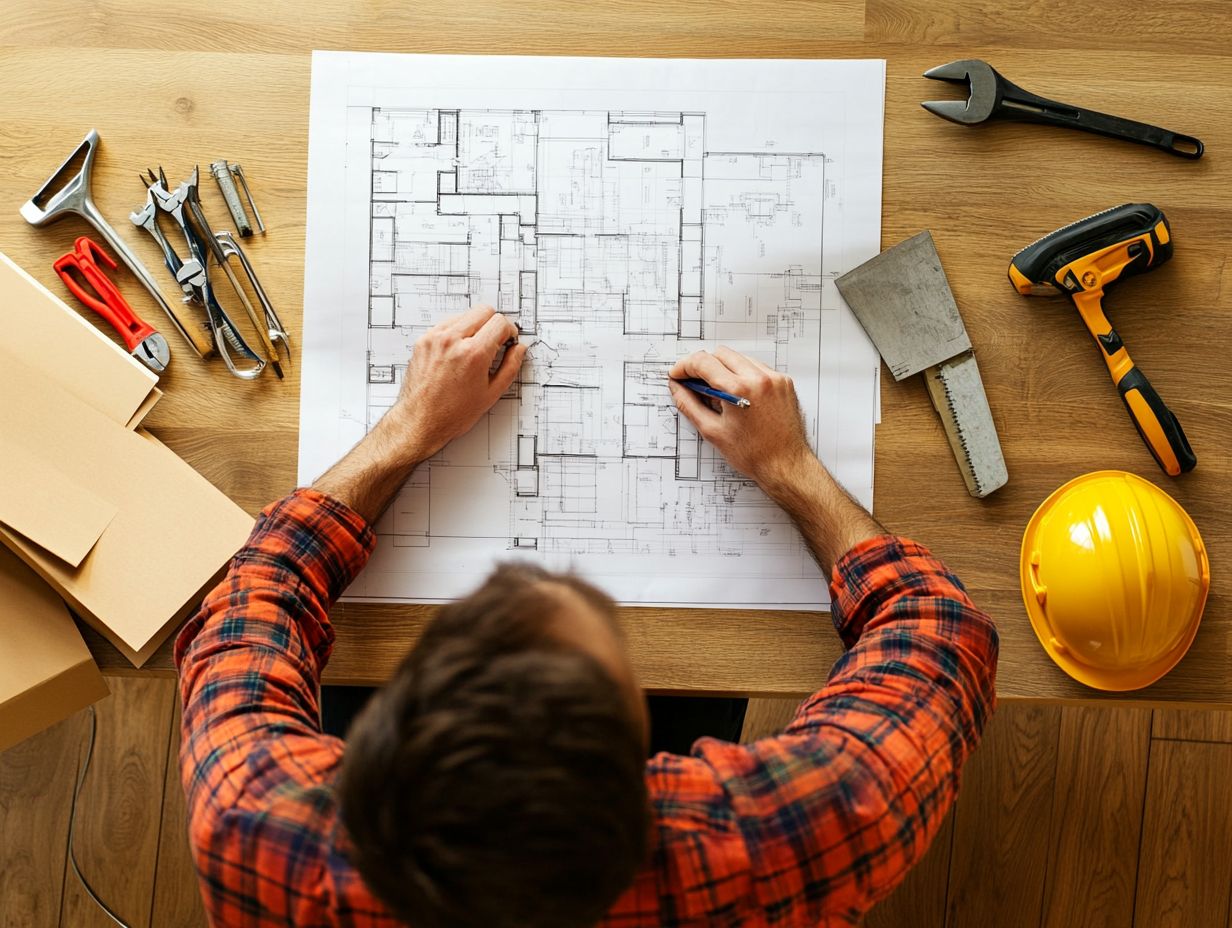
What is a home inspection and why is it important?
A home inspection is a thorough examination of a property’s condition from top to bottom, including the structure, systems, and components. A home inspection is crucial because it helps you avoid unexpected repair costs!
Who is responsible for handling home inspection repairs?
The responsibility for handling home inspection repairs ultimately falls on the homeowner. However, depending on the sale contract terms, the buyer may negotiate for certain repairs to be completed by the seller before finalizing the purchase. It’s important to know how to handle post-inspection repairs effectively.
How do I prioritize which repairs to address first?
Prioritize home inspection repairs based on severity and potential impacts on safety and livability. For effective guidance, consider tips for managing post-inspection repairs. Essential repairs related to structural or safety issues should be addressed first, followed by those affecting the functionality or condition of the home.
Can I negotiate on the cost of home inspection repairs?
Yes, you can negotiate the cost of home inspection repairs, especially if they are significant and could impact the property’s value. Consulting with a professional, such as a real estate agent or attorney, can help you handle post-inspection negotiations on your behalf and ensure a fair outcome.
What happens if I cannot afford to make all necessary repairs?
If you cannot afford all necessary repairs, you may negotiate with the seller for a reduction in the property’s sale price. Alternatively, prioritize the most essential repairs and budget for the rest over time to ensure the home’s safety and livability.
Is it necessary to get a re-inspection after completing repairs?
While it’s not mandatory, it’s highly recommended to get a re-inspection after completing repairs. This ensures that repairs were done properly and that no additional issues arose during the process. It also provides peace of mind for both the buyer and seller.
If you’re ready to take the next steps, consider scheduling a home inspection or contacting a contractor today!


